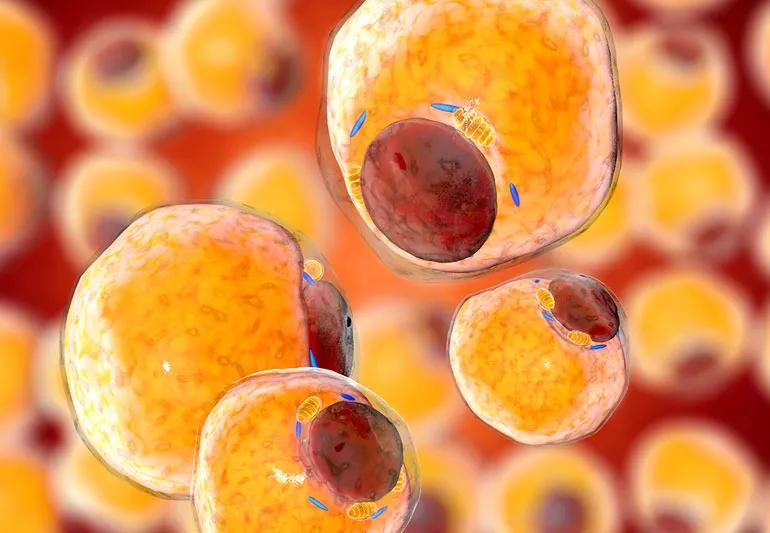What happens when you diet and exercise

Image content: This image is available to view online.
View image online (https://assets.clevelandclinic.org/transform/9ef9b774-b89e-45f5-ae76-4889c099a7f0/fatCellsInBody-625302208-770x553_jpg)
Fat cells in body
What happens to body fat when you shed pounds — do you sweat it out, pee it out or breathe it out? The answer is yes, yes and yes.
Advertisement
Cleveland Clinic is a non-profit academic medical center. Advertising on our site helps support our mission. We do not endorse non-Cleveland Clinic products or services. Policy
How on earth does this happen? “It helps to understand that our bodies are designed to store excess energy in fat cells,” says endocrinologist Bartolome Burguera, MD, PhD.
If you have overweight, it means you’re taking in more energy (calories are units of energy) than you’re using.
“The extra energy is stored in adipose tissue all around your body in the form of triglycerides,” says Dr. Burguera. Smaller amounts of energy are stored in your liver and muscles as glycogen.
How does your body use energy? In more ways than you’d think:
When you diet, you take in fewer calories than your body needs. Because of this deficit, your body turns to fat reserves for energy.
Your body must dispose of fat deposits through a series of complicated metabolic pathways.
The byproducts of fat metabolism leave your body:
Advertisement
“Meanwhile, fat breakdown liberates energy for biological functions and physical activity,” Dr. Burguera says. “It also generates heat, which keeps body temperatures normal.”
Your muscles first burn through stored glycogen for energy. “After about 30 to 60 minutes of aerobic exercise, your body starts burning mainly fat,” he explains. (If you’re exercising moderately, this takes about an hour.)
Experts recommend at least 30 minutes of cardio two to three times a week.
They also recommend weightlifting and resistance training. Increasing muscle mass may help you burn more calories and raise your basic metabolic rate.
Exercise also increases your respiratory rate, so more CO2 leaves your body when you work out.
“Exercise is key to weight loss and to maintaining that weight loss,” states Dr. Burguera.
But it may take time to move the number on your scale, so be patient.
Everyone’s response to exercise varies: Some people lose weight, others maintain it and a few may even gain a few pounds.
“Generally, however, people who successfully lose weight and keep it off tend to be physically active — up to an hour per day,” Dr. Burguera adds. “Engaging in some form of exercise three times per week is highly recommended.”
If you’re unsure how to add fitness into your daily routine or have questions about diet and a weight that’s healthy for you, it’s always best to reach out to a healthcare provider or dietitian first.
Advertisement

Sign up for our Health Essentials emails for expert guidance on nutrition, fitness, sleep, skin care and more.
Learn more about our editorial process.
Advertisement
Actively choose healthy habits not only when it comes to food and nutrition, but also physical activity and your mental health
Trying fad diets and skipping meals won’t do you any favors
Wearing this undergarment for too long will do more harm than good
Quick weight loss is possible, but it’s not sustainable
You can lose 15% of your body weight, plus lower your heart disease and diabetes risks
A safe and effective surgery that shouldn’t be considered only as a last resort
Focus on physical activity and foods that pack a nutritional punch to help you lose weight
Skip this unproven, unsafe and unregulated weight-loss practice
Type 2 diabetes isn’t inevitable with these dietary changes
Applying a hot or cold compress can help with pain
Pump up your iron intake with foods like tuna, tofu and turkey